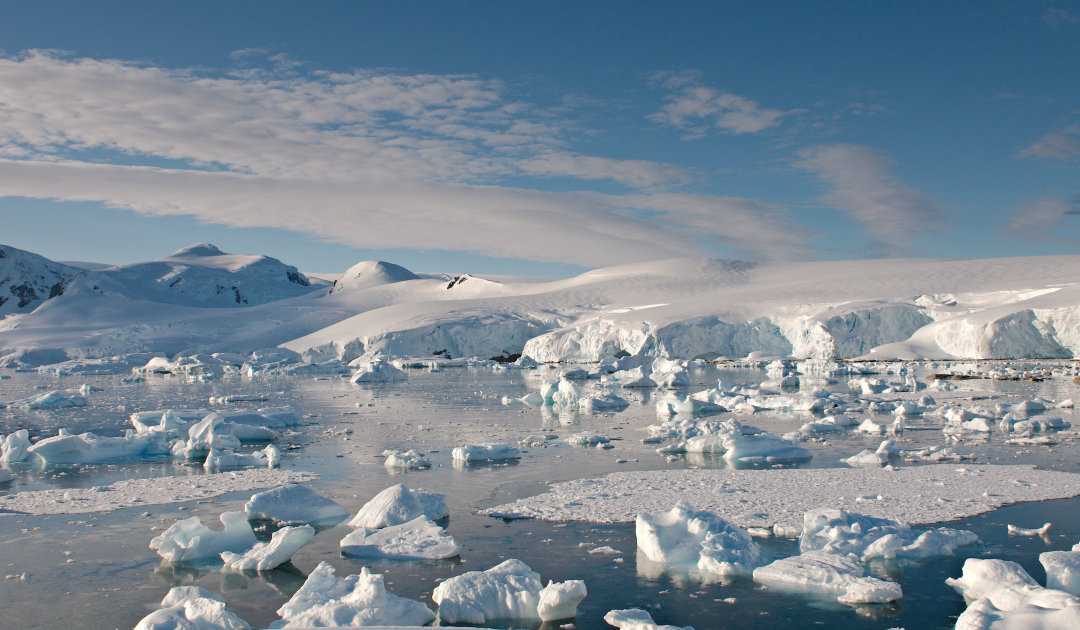
The depths of the Southern Ocean are home to numerous animal species, some of which are still little explored. The fish fauna is also surprisingly rich. Antarctic fishes show a wide range of adaptations to their icy habitat. Until now, it was thought that the animals would be in big trouble due to the warming of their habitat. But a US research team has discovered that the fish are much more adaptable and can outmanoeuvre heat stress.
The results of the Virginia Tech research team, led by Professor Michael Friedlander, showed that two Antarctic fish species studied responded to an increase in their ambient temperature with increased fanning and spreading of the pectoral fins, rapid escape movements, and an increased alternating pattern of movement and rest. This also increases the fish’s respiration and, depending on the species, allows them to absorb more oxygen through their gills or skin. According to Professor Friedlander, “Antarctic fish appear to compensate for increased metabolic demand (due to warmer water, ed.) by enhancing respiration through species-specific locomotor and respiratory responses, demonstrating their resilience to environmental change and possibly global warming.”
For the study, the lead author of the paper, Dr. Iskander Ismailov of Virgina Tech, examined the “Black rockcod” Notothenia coriiceps on the one hand and the black finned icefish Caenocephalus aceratus on the other. Both species were exposed to a gradual increase in water temperature from -1.8°C to 13°C and the responses to this were accurately recorded and evaluated. One of the main differences between the two related species lies in their blood. Notothenia, like almost all vertebrates, has hemoglobin as a blood pigment, while Caenocephalus has no hemoglobin. As a result, the latter species can only transport about 10 percent of the amount of oxygen. The animals compensate for this by being able to absorb oxygen not only through their gills but also through their skin, and by being able to supply their organs with the faster-flowing blood via a special cardiovascular system. And since there is more oxygen available in cold water than in warmer water, the fish are actually very well adapted. “A warming environment creates a multi-faceted challenge for fish,” Friedlander said. “This includes an increased temperature of the central nervous system and target tissues such as skeletal and cardiac muscles, but also reduced availability of dissolved oxygen in the water that passes through the gills during respiration.” By responding to the warming with changes in movement, the fish compensate for this reduction and thus tolerate the warmer environment.
The study found that the two species showed different responses to warming. While the icefish used the pectoral fins more and let more water flow over the gills and the skin, Notothenia showed faster movement patterns as in escape reactions and more spreading of the gill covers. This, too, probably serves to increase oxygen uptake, the research team concludes in their paper. So could fish also adapt to the gradual warming of their habitat and continue to live in Antarctic waters? “While these findings suggest that Antarctic fishes may be able to behaviorally adapt somewhat under extreme conditions, little is known about the effects of environmental warming on their predation habits, food availability, and fecundity,” Friedlander explains. Iskander Ismailov also warns against too much euphoria: “The Southern Ocean was massively overfished in the 1970s and 1980s due to unregulated fishing. These activities have so depleted populations of some species that prospects for recovery are still unclear.” And Professor Friedlander concludes, “By doing these types of proof of principle experiments now to begin to understand the physiological repertoire available to species at risk, we can begin to make more informed predictions about what sort of perturbations within complex ecosystems that climate change may trigger, and what type of reserve and adaptive capacity individual species may deploy.”
Dr Michael Wenger, PolarJournal







